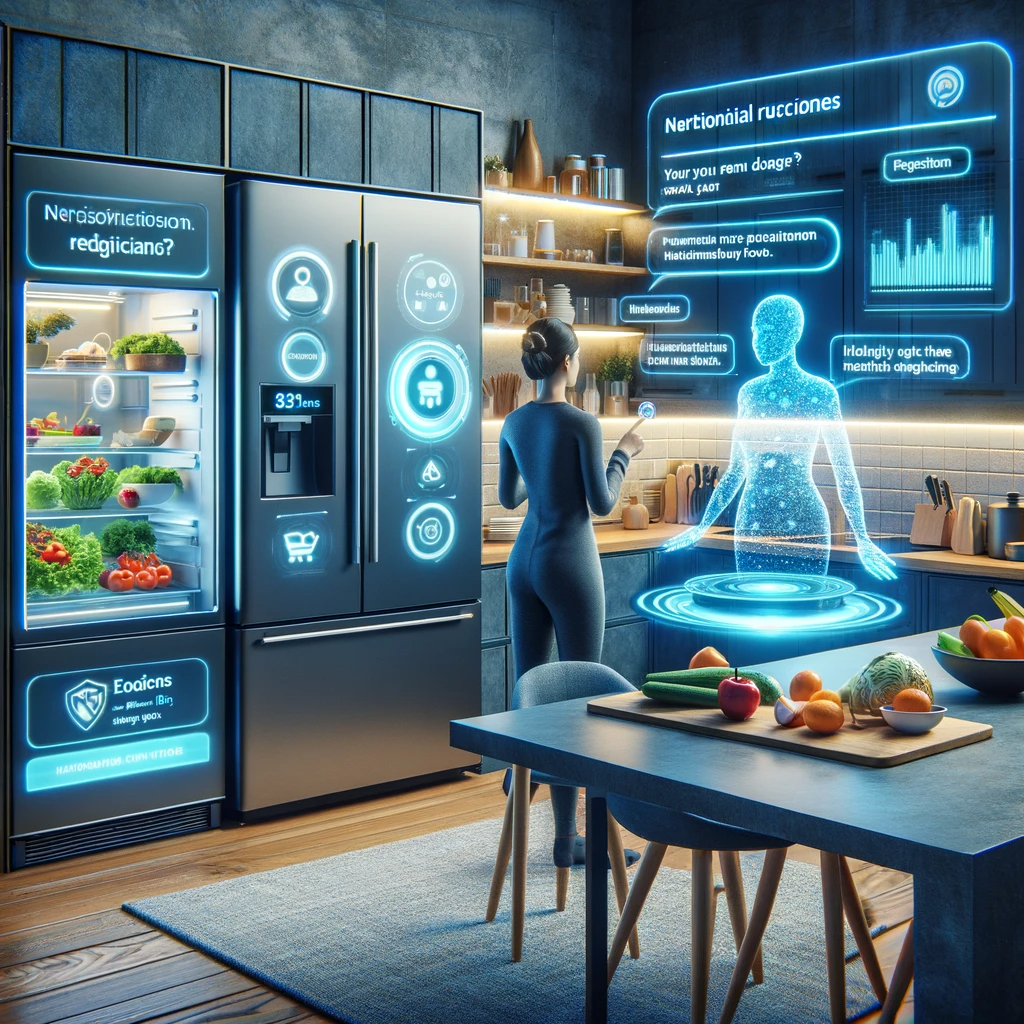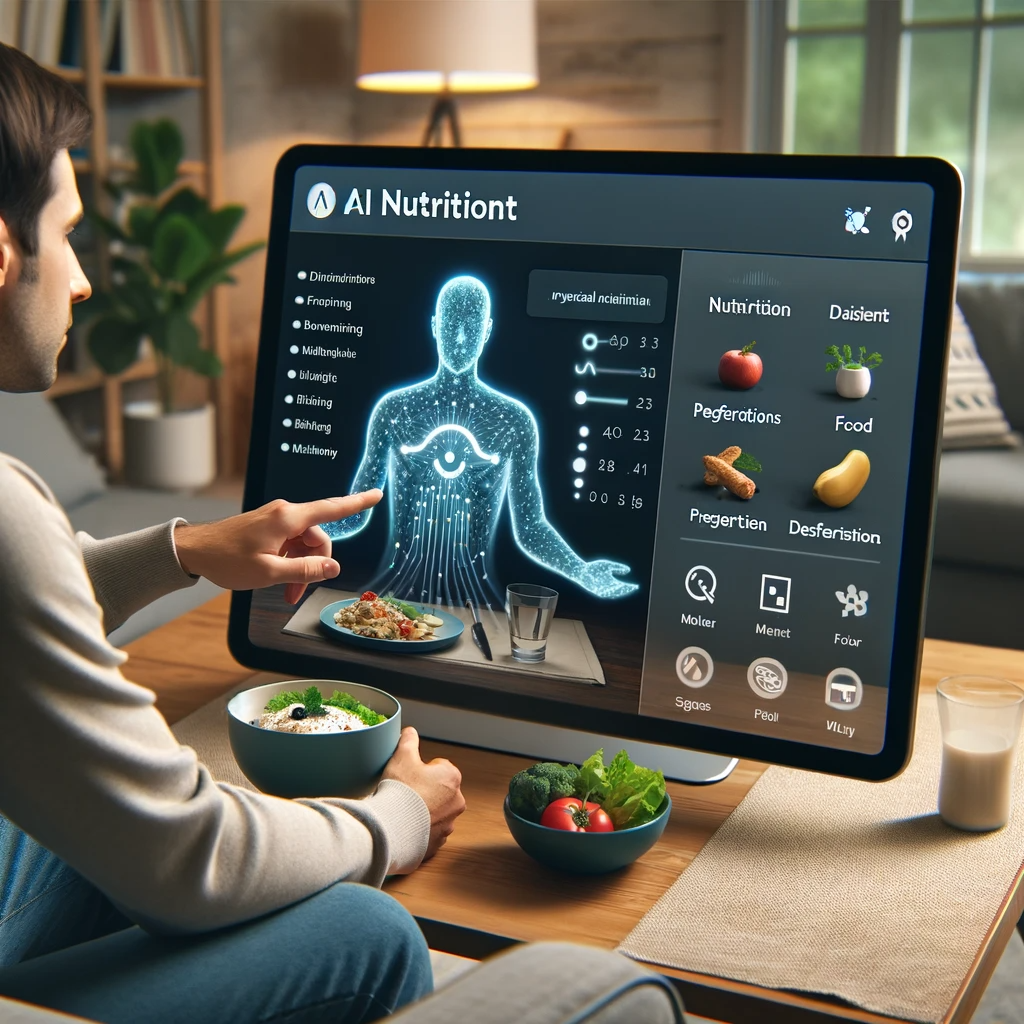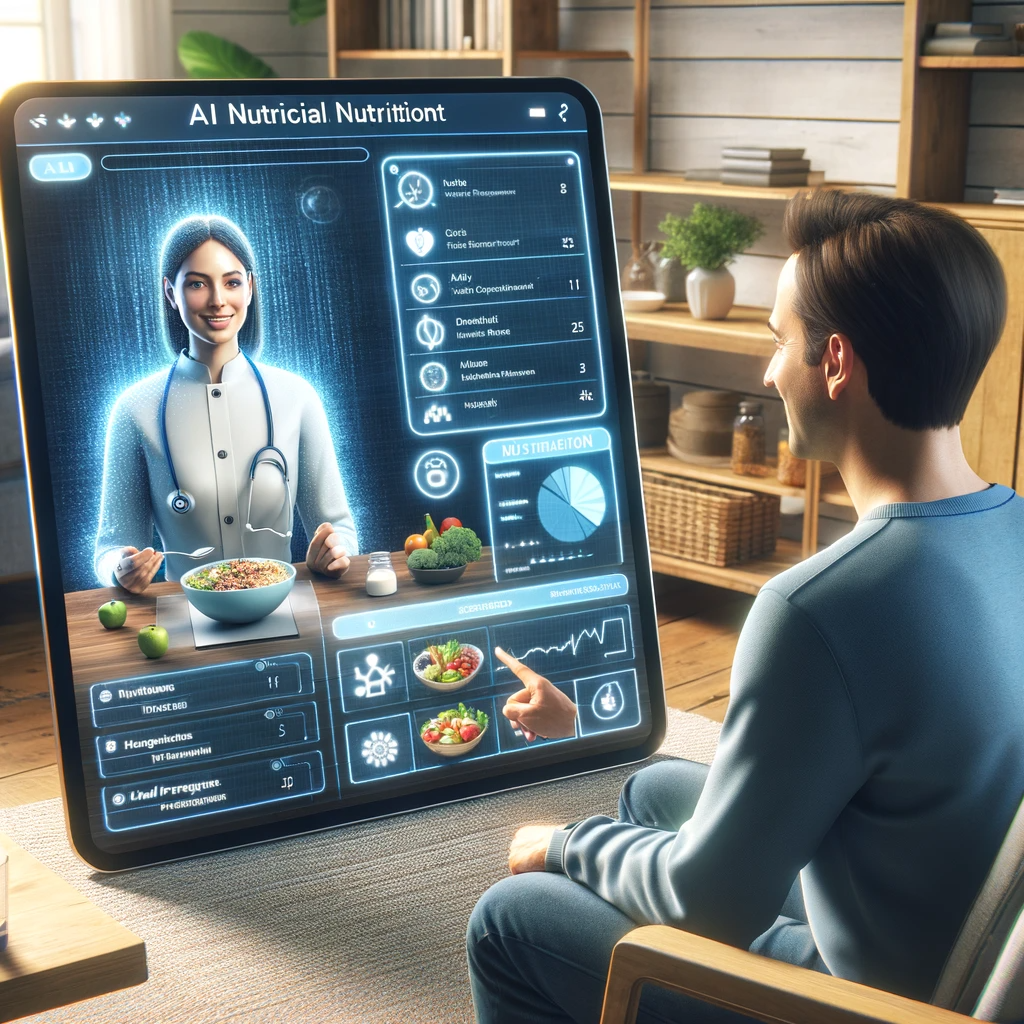In an era where individuality reigns supreme and one-size-fits-all solutions increasingly fall short, the quest for personalized experiences extends beyond fashion and entertainment—it delves deep into the realm of health and nutrition. The recognition that each person’s dietary needs and goals are unique has led to a growing demand for personalized nutritional advice. While traditional dietary guidelines offer broad recommendations, they often fail to consider the individual variations in metabolism, genetics, and lifestyle that profoundly influence one’s health and well-being.
Enter the transformative power of Artificial Intelligence (AI). In recent years, AI has emerged as a revolutionary force capable of reshaping how we approach nutrition and dietary choices. Beyond its portrayal in science fiction, AI is becoming a tangible solution to the age-old challenge of tailoring dietary recommendations to suit the specific needs and preferences of each individual.
This article embarks on a journey into the intersection of AI and nutrition, exploring the tantalizing question: Is AI the Key to Personalized Nutritional Advice? As we navigate this exploration, we will uncover the profound impact AI is having on the way we make dietary decisions and the potential it holds to revolutionize our approach to nutrition.
In a world where health and well-being are paramount, the ability to harness the capabilities of AI to provide personalized nutritional guidance has the potential to empower individuals on their unique health journeys. This article will delve into how AI processes health data, generates personalized dietary recommendations, overcomes common dietary challenges, and addresses ethical considerations in the quest for tailored nutrition. It will also glimpse into the future, speculating on the transformative role AI will play in the world of personalized nutrition.
As we embark on this journey, we invite you to explore the fusion of cutting-edge technology and the age-old pursuit of a healthier, more fulfilling life. Join us as we unravel the potential of AI to unlock the key to personalized nutritional advice, where each individual’s unique health needs are at the forefront of dietary choices.
The Quest for Personalized Nutrition
In an age where diversity and individuality are celebrated, the conventional approach to nutrition, often characterized by generic dietary guidelines, is increasingly being scrutinized. While such guidelines offer a one-size-fits-all approach to health and nutrition, they often fail to account for the vast spectrum of individual variations that influence our dietary needs and goals. The realization that no two individuals are the same has ushered in a new era of personalized nutrition, where tailored dietary recommendations based on individual health data and preferences take center stage.
As we delve into this transformative field, we encounter the pressing need for personalized nutritional advice. The limitations of generic dietary recommendations become evident when we consider the wide-ranging factors that influence our nutritional requirements. Factors such as genetics, metabolism, existing health conditions, dietary restrictions, allergies, and even personal preferences all play a crucial role in determining what constitutes an ideal diet for each individual.

AI-Powered Health Data Analysis
The key to unlocking personalized nutrition lies in harnessing the capabilities of Artificial Intelligence (AI). AI’s prowess in processing and analyzing vast amounts of health data has positioned it as a game-changer in the field of personalized nutrition. Through machine learning algorithms, AI can sift through complex health information, including genetic data, medical records, and dietary preferences, with a level of precision and speed that far surpasses human capabilities.
At the heart of AI’s potential in this field is its ability to identify patterns and correlations within health data. By examining the interplay between various data points, AI can uncover insights that may remain hidden to traditional analytical methods. It can discern how genetics may influence metabolism, how specific dietary choices impact health outcomes, and how lifestyle factors contribute to overall well-being.
Personalized Dietary Recommendations
AI’s true magic in personalized nutrition emerges when it transforms data into actionable insights. Armed with a wealth of health information, AI can generate highly personalized dietary recommendations tailored to each individual’s unique needs and goals. These recommendations go far beyond the scope of traditional dietary guidelines, accounting for a multitude of factors that influence dietary choices.
Imagine receiving dietary advice that takes into consideration your genetic predispositions, current health status, dietary restrictions, allergies, and even your culinary preferences. AI has the capacity to craft dietary plans that align with your specific objectives, whether it’s weight management, chronic disease prevention, or optimizing athletic performance.
These recommendations are not static but adaptive, continuously evolving as new data becomes available. Real-time data, such as information from wearable devices and biomarker measurements, can be seamlessly integrated into AI-driven dietary plans, ensuring that recommendations remain aligned with an individual’s changing health status.
Overcoming Dietary Challenges
AI doesn’t stop at crafting personalized dietary recommendations; it also addresses some of the most common dietary challenges individuals face. Whether it’s managing weight, navigating food allergies, adhering to dietary restrictions, or dealing with chronic health conditions, AI-powered solutions are on the horizon.
For those striving to shed excess pounds, AI can provide tailored weight management strategies that consider an individual’s unique metabolic rate and dietary preferences. It can offer meal plans that are not only effective but also enjoyable, increasing the likelihood of success.
Individuals with food allergies or intolerances can benefit from AI-driven dietary advice that carefully excludes problematic ingredients while ensuring a balanced and nutritious diet. AI can help individuals with chronic conditions manage their dietary choices to alleviate symptoms and improve overall health.
Moreover, AI has the potential to enhance adherence to personalized dietary plans through behavioral nudges and reminders. By leveraging the principles of behavioral psychology, AI can encourage individuals to make healthier food choices and stay on track with their dietary goals.
As we navigate the realm of personalized nutrition powered by AI, we begin to see how technology is poised to revolutionize our approach to dietary decisions. With the quest for tailored nutritional advice gaining momentum, AI emerges as a transformative force that has the potential to empower individuals to take charge of their health and well-being like never before.
Ethical and Privacy Considerations
As we delve deeper into the integration of AI in personalized nutrition, it becomes imperative to address the ethical and privacy considerations that accompany this transformative field. While AI offers immense potential to improve health outcomes and well-being, it also raises ethical questions that demand careful consideration.
One of the foremost concerns in the realm of personalized nutrition is the handling of sensitive health data. AI relies on access to a wide range of personal information, including genetic data, medical records, and dietary preferences, to provide tailored recommendations. The collection and storage of such data must be done with the utmost care, ensuring stringent security measures and robust privacy protections. Individuals must have full control over their data and provide informed consent for its use in AI-driven nutritional guidance.
Transparency in AI algorithms is another ethical consideration. Users of AI-powered nutrition platforms should have a clear understanding of how recommendations are generated and the data sources that influence them. Ensuring that AI algorithms are not biased and that they provide fair and unbiased recommendations is crucial to maintaining trust in this technology.
Moreover, the potential for AI to influence dietary choices and health behaviors raises ethical questions about autonomy and informed decision-making. While AI can offer valuable guidance, individuals must retain the freedom to make their dietary choices based on their values and preferences. AI should serve as a tool for empowerment rather than a means of coercion or manipulation.
Regulatory efforts are already underway to address these ethical concerns. Guidelines and standards are being developed to ensure that AI in personalized nutrition adheres to the highest ethical standards and prioritizes user privacy and autonomy. As this field continues to evolve, ethical considerations will play a central role in shaping its future.

The Future of Personalized Nutrition
As we peer into the future, the landscape of personalized nutrition powered by AI appears dynamic and full of promise. The integration of AI into the realm of nutrition is not a static achievement but an ongoing journey of innovation and refinement.
AI technology will continue to advance, becoming more sophisticated in its ability to process and analyze health data. This will lead to even more precise and personalized dietary recommendations, further enhancing the individual’s ability to optimize their health and well-being.
The future may also witness the integration of AI into everyday life, seamlessly guiding dietary choices in real-time. Imagine a world where AI-powered nutrition assistants are embedded in kitchen appliances, wearable devices, and even restaurant menus, providing instant insights and recommendations.
Furthermore, AI’s role in preventive healthcare will expand, with the potential to identify health risks and provide proactive dietary guidance to mitigate those risks. This proactive approach to health management can lead to substantial improvements in overall well-being and a reduction in the prevalence of chronic diseases.
The possibilities are boundless, and as AI-driven personalized nutrition continues to evolve, it will empower individuals to take control of their health in unprecedented ways. The future holds the promise of a world where each person’s unique health needs are not only recognized but also seamlessly integrated into their daily dietary choices.
In conclusion, the intersection of AI and personalized nutrition represents a transformative journey that empowers individuals to make informed and tailored dietary decisions. As we navigate this landscape, we must remain vigilant in addressing ethical and privacy considerations while embracing the exciting potential that AI brings to the world of health and well-being. The future of personalized nutrition is a world where health is truly personalized, and AI is the key to unlocking its full potential.
